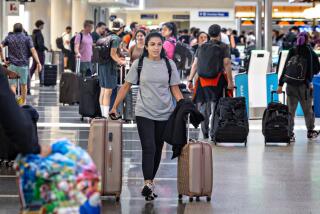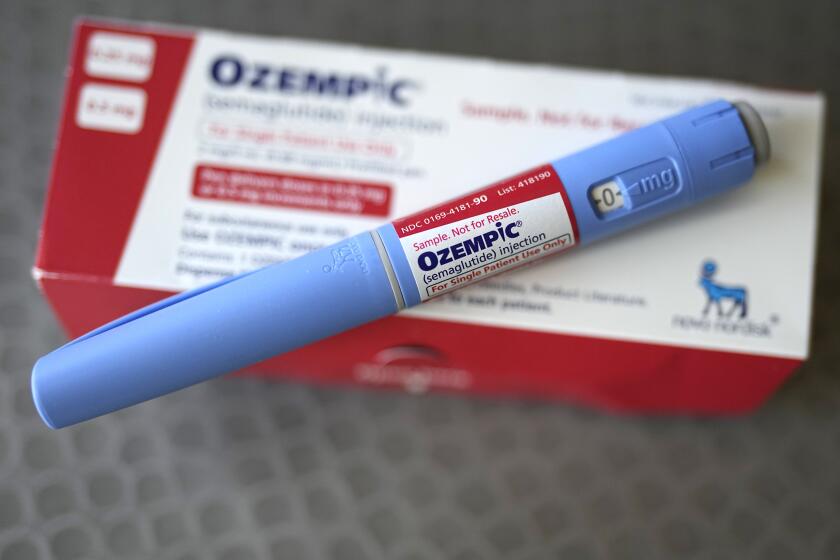How we can learn our way out of the pandemic
- Share via
The COVID-19 pandemic has seen remarkable and rapid research in vaccines and therapeutics, but disappointingly little research to shed light on the interventions we currently use to reduce SARS-CoV2 transmission. That is a problem because even with vaccines on the way, we will be stuck with COVID-19 for a considerable time. We urgently need more research to identify and disseminate the most effective and least disruptive interventions and practices to reduce virus transmission, for this pandemic and the ones that will inevitably follow.
Governments, businesses, schools and of course individuals are implementing a host of protective coronavirus strategies, but rarely in ways that would allow us to directly compare different options. Until we build evaluation methods into these efforts, we can act but we will not learn the best way forward.
The most rigorous way to evaluate strategies is by conducting randomized trials. Randomized trials are true experiments that essentially flip a coin to assign people (or larger units such as schools or clinics) to groups that either receive or do not receive the particular intervention of interest. Because randomization makes the groups similar in every way except the intervention — and because no one knows which group is which — any differences in what happens can be attributed to the intervention, not to things like variations of age, gender, race, health status or other treatments.
Compared with the testing of coronavirus vaccines and drugs, few randomized trials exist on the effects of non-pharmacological transmission-prevention efforts. Although a preponderance of evidence leaves no doubt that wearing masks, social distancing and frequent hand washing are effective, especially in combination, there is more to learn about how best to carry out and promote these and other efforts, and how to tailor them to local situations. A consortium of scientists and public health experts, called the BESSI collaboration (BESSI stands for “behavioral, environmental, social and systems interventions”), is calling for more research — especially trials — to fill in knowledge gaps.
The BESSI collaboration has identified 1,725 drug trials (213 with published results) related to COVID-19, compared to just 11 trials of behavioral, environmental, social and systems interventions (three with published results), none of which are U.S.-based. Of the $3.3 billion in global funding for COVID research, only 3% to 4% has been spent on public health as opposed to pharmacological interventions, according to an analysis conducted at the University of Southampton in Britain.
Not every question can or needs to be answered with randomized trials. Randomized trials are expensive and difficult to organize, and less rigorous study designs, including observational studies and modeling, are also helpful. A recent ambitious modeling study using data from 56 countries, for example, identified a broad set of promising non-pharmacological interventions, implemented by governments, that appear to reduce COVID transmission.
Still, compared to randomized trials, these approaches are more likely to be exaggerated or wrong. Confirmatory trials are important to inform adoption of promising interventions if there is real uncertainty about the best option, especially if the proposed actions are disruptive, costly or can cause serious side effects.
While the best research methods will vary with the type of question being asked, there should be little argument about building tests into the private and public, local, state and national efforts underway to combat the pandemic. For example, there are thousands of colleges and universities struggling to design policies to bring students back to campus. This presents the opportunity to conduct randomized trials evaluating such things as quarantine regimens, social bubble designs or ventilation changes in dorms and classrooms.
President-elect Joe Biden has released his plan to bring the pandemic under control. Among other things, it calls on the Centers for Disease Control and Prevention to provide community guidance and resources on how and when schools and businesses can safely open and when they need to shut down. To create the evidence to inform such guidance requires a substantial, coordinated increase in the relevant public health research.
COVID-19 isn’t going to be eradicated anytime soon. In the meantime, hundreds of thousands more lives may be lost. We need stronger political and public health leadership, and a refocused research agenda, to help us learn our way out of the pandemic and prepare for the next one.
Steven Woloshin is a professor of medicine at the Dartmouth Institute for Health Policy and Clinical Practice, and director of the Lisa Schwartz Foundation for Truth in Medicine. Paul Glasziou is a professor of evidence-based medicine and director of the Institute for Evidence Based Healthcare, Bond University, Australia. Susan Michie is a professor of health psychology and director of the Center for Behavior Change, University College London. Glasziou and Michie are among the founders of the BESSI collaboration.
More to Read
A cure for the common opinion
Get thought-provoking perspectives with our weekly newsletter.
You may occasionally receive promotional content from the Los Angeles Times.









